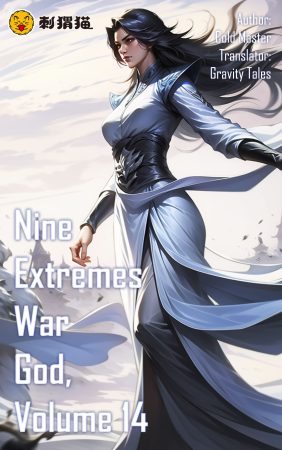Chapter 11
Our Discord Server: https://discord.gg/PazjBDkTmW
You can buy coins here to unlock advanced chapters: https://gravitytales.com/coins-purchase-page/
Chapter 11: Abundant Virtue
War is a strange thing, and so is politics.
On December 29, 1838, the Battle of Marburg broke out, with the Prussian and French allied forces confronting the South Baden, Bavaria, and Austrian puppet government coalition forces.
The grudge between Prussia and France goes back a long way. In the recent past, Napoleon I marched into Berlin in less than 20 days, held a grand parade at the Brandenburg Gate, forced Prussia to cede half of its territory to the puppet government, and after the Napoleonic Wars, France became dominant in Europe.
Prussia and France are bitter enemies now. Just before Christmas, the two armies clashed over North Baden, and today, on December 29, Prussian and French forces are fighting side by side against a common enemy, vying for control of the Marburg region.
The Battle of Marburg, with a total of less than five thousand troops from all sides, may seem like a small skirmish, but it is the largest battle in the current chaos in South Germany.
The weather this winter is relatively warm, and the French Emperor Napoleon III is also personally present at the front lines.
The focus of the battle is on a wide field outside Marburg city. The French Emperor and the Prussian Prince Regent are watching from a hill behind the battlefield, and the two of them had a friendly meeting on the battlefield.
Leader One is accompanied by only twelve people, led by Catherine, the twelve Magic Energy Knights.
Behind Napoleon, there was a well-organized formation of cavalry guards, along with thirty Magic Energy Knights patrolling around.
The grandeur and presence of both sides were completely incomparable.
"My dear Redel, we finally meet again. Have you been writing lately? I have been eagerly looking forward to your new work," Napoleon III said as he gave a big hug.
Leader One replied, "Oh my dear Emperor Napoleon, there are too many troubles in Prussia at the moment. I don’t have time to continue writing novels for now."
Napoleon III was a passionate fan of Leader One, having read his three sci-fi novels in the "Public Era" series numerous times. He often brought up the storyline of France surrendering at the speed of light from the novels during conversations.
He would tell the people of France, "Have you read that novel? Look, that’s what happens without an emperor. Only Napoleon, only I can lead France to eternal victory."
Although Leader One went wild in his sci-fi novels, Napoleon III did not mind at all. He believed that Leader One’s novels actually supported the divine monarchy. In the books, it was written that a country without an emperor is worthless.
"Dear Redel, if you have the time to write a new work, could you write a story about the return and restoration of Emperor Napoleon, leading France to greatness once again? If you are willing to write, I will pay you a generous fee," Napoleon III requested.
Leader One chuckled and politely declined, "Dear Napoleon III, I don’t have time to write science fiction now, and I don’t support custom-made storylines either."
On the battlefield, the guns and cannons started firing, and if you looked closely, you could see limbs flying.
On the hillside, the two rulers were discussing the plot of a novel with smiles on their faces, creating a very pleasant atmosphere.
The Prussian cavalry of the regular army was positioned on the left flank of the battlefield, while the Prussian militia infantry and the French infantry and artillery advanced together.
Lieutenant General Moltke, the commander of the Prussian army, assigned a supervisory team to the militia infantry battalion, and another supervisory team from the regular army to ensure that the weak militia soldiers did not retreat.
The lines were all over the place, the military band played dissonant music, and the militia infantry of Prussia were disorganized in their uniforms and weapons, with some even carrying matchlock guns, appearing as a motley crew.
The allied forces fought side by side.
The French army marched in perfect formation, with musicians playing marches, and the long lines of infantry moved forward to the rhythm of the music. Despite artillery and gunfire, the French soldiers fell one by one, but each gap was quickly filled by the soldiers behind, maintaining the formation’s advance.
The French artillery relentlessly bombarded the temporary breastworks of the enemy, quickly reducing the makeshift walls to rubble.
On the flanks of the infantry lines, the French also deployed sparse skirmishers, with one or two snipers equipped with modern rifles positioned every few dozen meters. They targeted specific positions, causing continuous casualties and preventing the enemy from replacing fallen soldiers.
The best soldiers of the French army followed the commander’s order to stop at a distance of 125 meters, raised their guns in unison, and started shooting.
There were quick flashes of fire, slightly muffled gunshots, and smoke from the burning gunpowder began to spread. The dense bullets flew towards the enemy causing a lot of casualties. The French soldiers’ synchronized shooting almost crushed the enemy’s morale.
There was no excitement or high spirits among the French soldiers. They seemed like efficient and ruthless killing machines. They coldly loaded their guns and, after twenty-five seconds, unleashed a second round of synchronized shooting.
As the enemy fought back, sometimes bullets hit someone’s face, and blood and body tissues splattered on the soldiers beside them. Despite the bloody horrors, the French soldiers remained unwavering, systematically slaughtering the enemy at a precise rate of one synchronized shot every 25 seconds.
Compared to the elite French soldiers, the Prussian National Army seemed like amateurs…
Watching the battle from a hill, Leader One felt embarrassed. They couldn’t even do synchronized shooting or line up properly. Their reloading speed was generally one shot per minute, and the entire National Army fired sporadically.
After only six minutes of exchanging fire, the enemy lost all morale and began to retreat. The French army stayed in place to clear the battlefield, rescue wounded comrades, and collect the dead.
Moltke signaled the urgent call to arms, and the Prussian cavalry, who were well-trained through daily bloody practice, charged forward. They efficiently harvested the defenseless, with swift and deadly precision.
Napoleon III applauded, "The Prussian cavalry is well-trained and very effective in dealing with fleeing enemies."
Leader One stood to the side with a frown, while France Emperor hinted that the Prussian cavalry would bully the weak and avoid engaging the tough ones directly, choosing to stay back when facing resistance.
If it were French cavalry, after causing heavy casualties with synchronized infantry shooting five rounds, they would charge together with the infantry to crush the enemy, instead of waiting for them to flee before attacking.
Putting on a sincere flattering expression, Leader One said, "France Emperor, you are wise and mighty. Under your rule, the French army is so powerful, like a god, the strongest army in European history…no, in human history."
"Many say His Majesty Napoleon III lacks the military genius of his predecessor, but in my opinion, your military achievements are no lesser than Napoleon I. You are the ruler of Europe."
Napoleon III realized that the Prince Regent of Prussia was praising himself, exaggerating his own merits to boost his ego. However, Napoleon III still enjoyed the flattery.
Due to frequent criticism within France that Napoleon III was incompetent in military affairs compared to former emperors, although he rarely defended against such claims outwardly, he was silently accumulating grievances.
Napoleon III was eager to prove himself, to show his military capabilities and be on par with his uncle. This mindset directly led to a major event in the future…
Eventually, it was proven that he was inadequate.












